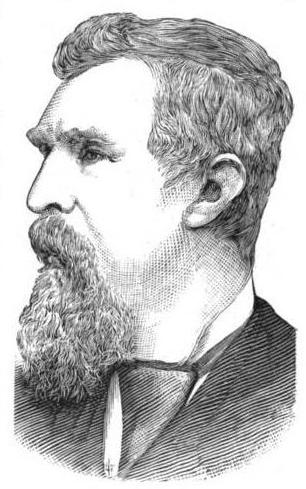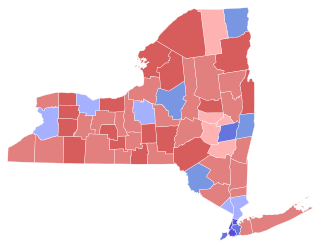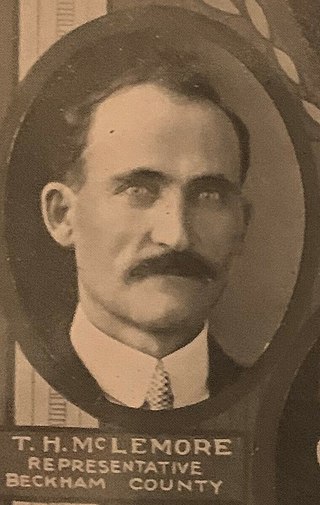There have been various groups in Canada that have nominated candidates under the label Labour Party or Independent Labour Party, or other variations from the 1870s until the 1960s. These were usually local or provincial groups using the Labour Party or Independent Labour Party name, backed by local labour councils made up of many union locals in a particular city, or individual trade unions. There was an attempt to create a national Canadian Labour Party in the late 1910s and in the 1920s, but these were only partly successful.

The 1964 United States Senate elections were held on November 3. The 33 seats of Class 1 were contested in regular elections. Special elections were also held to fill vacancies. They coincided with the election of President Lyndon B. Johnson by an overwhelming majority, to a full term. His Democratic Party picked up a net two seats from the Republicans. As of 2023, this was the last time either party has had a two-thirds majority in the Senate, which would have hypothetically allowed the Senate Democrats to override a veto, propose constitutional amendments, or convict and expel certain officials without any votes from Senate Republicans. In practice, however, internal divisions effectively prevented the Democrats from doing so. The Senate election cycle coincided with Democratic gains in the House in the same year.

The 1944 United States Senate elections coincided with the re-election of Franklin D. Roosevelt to his fourth term as president. The 32 seats of Class 3 were contested in regular elections, and three special elections were held to fill vacancies.

1916 United States House of Representatives elections were elections for the United States House of Representatives to elect members to serve in the 65th United States Congress. They were held for the most part on November 7, 1916, while Maine held theirs on September 11. They coincided with the re-election of President Woodrow Wilson.

1914 United States House of Representatives elections were elections for the United States House of Representatives to elect members to serve in the 64th United States Congress. They were held for the most part on November 3, 1914, while Maine held theirs on September 14. They were held in the middle of President Woodrow Wilson's first term.

The 1912–13 United States Senate elections were held on various dates in various states. They were the last U.S. Senate elections before the ratification of the Seventeenth Amendment in 1913, establishing direct elections for all Senate seats. Senators had been primarily chosen by state legislatures. Senators were elected over a wide range of time throughout 1912 and 1913, and a seat may have been filled months late or remained vacant due to legislative deadlock. Some states elected their senators directly even before passage of Seventeenth Amendment. Oregon pioneered direct election and experimented with different measures over several years until it succeeded in 1907. Soon after, Nebraska followed suit and laid the foundation for other states to adopt measures reflecting the people's will. By 1912, as many as 29 states elected senators either as nominees of their party's primary or in conjunction with a general election.

The politics of Oklahoma exists in a framework of a presidential republic modeled after the United States. The governor of Oklahoma is both head of state and head of government, and of a pluriform two-party system. Executive power is exercised by the governor and the government. Legislative power is vested in the governor and the bicameral Oklahoma Legislature. Judicial power is vested in the judiciary of Oklahoma. The political system is laid out in the 1907 Oklahoma Constitution.

Henry Smith was a millwright, architect, builder and politician who was elected a member of the United States House of Representatives from Wisconsin from 1887 - 1889 as a member of the Union Labor Party. He also served as a Socialist member of the Wisconsin State Assembly in 1878. At different times, Smith ran for office on the Socialist, Greenback, Democratic and Union Labor tickets.

The 1932 New York state election was held on November 8, 1932, to elect the governor, the lieutenant governor, the state comptroller, the attorney general, the chief judge, a U.S. Senator and two U.S. Representatives-at-large, as well as all members of the New York State Assembly and the New York State Senate.

An election to the County Council of London took place on 5 March 1913. It was the ninth triennial election of the whole Council. The size of the council was 118 councillors and 19 aldermen. The councillors were elected for electoral divisions corresponding to the parliamentary constituencies that had been created by the Representation of the People Act 1884. There were 57 dual member constituencies and one four member constituency. The council was elected by First Past the Post with each elector having two votes in the dual member seats. Unlike for parliamentary elections, women qualified as electors for these elections on exactly the same basis as men. Women were also permitted to stand as candidates for election.
The 1913 Leicester by-election was a Parliamentary by-election held on 27 June 1913. The constituency returned two Members of Parliament (MP) to the House of Commons of the United Kingdom, elected by the first past the post voting system.

The 2014 United States House of Representatives elections in Oklahoma were held on Tuesday, November 4, 2014, to elect the five U.S. representatives from the state of Oklahoma, one from each of the state's five congressional districts. The elections coincided with other elections to the United States Senate and House of Representatives and various state and local elections, including the Governor of Oklahoma and both of Oklahoma's United States Senate seats. Primary elections were held on June 24, 2014. Primary runoffs were held on August 26, 2014, in contests where no candidate won more than 50% of the vote.

The 2016 United States House of Representatives elections in Oklahoma occurred on November 8, 2016. Voters determined five candidates to serve in the U.S. House, one from each of the state's five congressional districts. The primaries were held on June 28.

The 2018 United States House of Representatives elections in Oklahoma were held on November 6, 2018, to elect the five U.S. representatives from the state of Oklahoma, one from each of the state's five congressional districts. The elections coincided with other elections to the House of Representatives, elections to the United States Senate and various state and local elections. Primary elections were held on June 26 and runoff elections were held two months later on August 28. The state’s U.S. House delegation Republican majority changed from 5-0 to 4-1. As of 2023 this is the only time since 2010 that Democrats won any house race in Oklahoma.
The 1948 Massachusetts general election was held on November 2, 1948, throughout Massachusetts. Primary elections took place on September 14.
The 1946 Massachusetts general election was held on November 5, 1946, throughout Massachusetts. Primary elections took place on June 18.

Thomas Henry McLemore was an American politician who served as a Socialist member of the Oklahoma House of Representatives representing Beckham County between 1914 and 1916. He was one of the first third party candidates elected to the Oklahoma House of Representatives alongside fellow Socialist Party Representatives David C. Kirkpatrick, N. D. Pritchett, Charles Henry Ingham, and Sydney W. Hill.

David C. Kirkpatrick was an American politician who served as a Socialist member of the Oklahoma House of Representatives representing Dewey County between 1914 and 1916. He was one of the first third party candidates elected to the Oklahoma House of Representatives alongside fellow Socialist Party Representatives Thomas Henry McLemore, N. D. Pritchett, Charles Henry Ingham, and Sydney W. Hill.

Sydney W. Hill was an American politician who served as a Socialist member of the Oklahoma House of Representatives representing Roger Mills County between 1914 and 1916. He was one of the first third party candidates elected to the Oklahoma House of Representatives alongside fellow Socialist Party Representatives David C. Kirkpatrick, N. D. Pritchett, Charles Henry Ingham, and Thomas Henry McLemore.

N. D. Pritchett was an American politician and newspaper editor who served as a Socialist member of the Oklahoma House of Representatives representing Kiowa County between 1914 and 1916. He was one of the first third party candidates elected to the Oklahoma House of Representatives alongside fellow Socialist Party Representatives David C. Kirkpatrick, Thomas Henry McLemore, Charles Henry Ingham, and Sydney W. Hill, and the first third party nominee for Speaker of the Oklahoma House of Representatives.
















